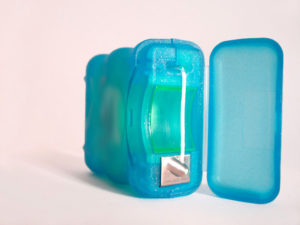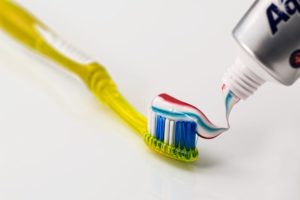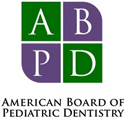Pediatric Dentist Near Me
 Between Halloween and Christmas, there are numerous tasty treats and foods to enjoy. For many people, food is the highlight of the holiday season. However, certain foods and candies are particularly damaging to your teeth. If you want to keep your smile looking healthy into the new year, here are some tips.
Between Halloween and Christmas, there are numerous tasty treats and foods to enjoy. For many people, food is the highlight of the holiday season. However, certain foods and candies are particularly damaging to your teeth. If you want to keep your smile looking healthy into the new year, here are some tips.
Candy Canes
Candy canes make for a tasty treat, but they are best left as decorations instead. Candy canes contain large amounts of sugar which can contribute to tooth decay. Also, if you bite into a candy cane you could chip a tooth. Our team suggests hard candies might be something for you to avoid this holiday season.
Gumdrops & Chewy Candies
If you are still working through your Halloween stash of candy, it might be a good idea to avoid chewy candies like gumdrops. These candies are known for sticking to your teeth. Excessive chewing can also lead to TMJ pain for some. We recommend leaving the Dots and Jujubes for decorating your gingerbread house instead.
Hot Chocolate
Warming up with a mug of hot chocolate makes a gloomy winter afternoon much more enjoyable. But hot chocolate is not particularly friendly to your teeth. Like coffee, the beverage can cause staining. Hot chocolate also contains excessive amounts of sugar, especially if you add marshmallows, which can contribute to tooth decay. If you insist on drinking hot chocolate, consider drinking water shortly afterwards to wash away some of the cocoa. We suggest brushing your teeth after drinking beverages such as coffee or hot chocolate.
Fruitcake
Another common holiday food to avoid this time of year is fruitcake. The sticky, sugary cake can lead to tooth decay. If you are someone who has had some dental work done in the past, such as crowns and fillings, fruitcake is your enemy.
Eggnog
You might want to consider a drink other than eggnog. Like most other foods on this list, the sugar content is something to avoid. The alcohol in it can lead to dry mouth, which is a particularly ideal breeding ground for bacteria.
We are all going to indulge this holiday season. Schedule a visit to our office after the holidays for a thorough cleaning and examination.
The holidays offer much in terms of tasty foods and sweet treats. But just because you might have some time off from work doesn’t mean you should take time off from your daily oral hygiene routine. Continue good practices such as flossing and brushing twice-daily. Avoid sweet, sugary treats, and if you have crowns or fillings, avoid things that might loosen them. Following these simple steps will keep your smile looking bright well past the holiday season.
For more tips on keeping your teeth healthy, or to schedule a visit, contact our office.
1039 Grant St., Suite B11
Atlanta, GA 30315
We are located two blocks from Zoo Atlanta at the Beacon Atlanta.
Phone: (470) 747-7888


 How often does your child eat candy? According to a study conducted by the USDA Economic Research Service, children under 12 consume an average of 49 pounds of sugar in one year. While candy is not the sole source of sugar in a child’s diet, the impacts of sugary candy treats are particularly harmful to teeth. Here’s what you need to know about candy and how it might be damaging your child’s smile.
How often does your child eat candy? According to a study conducted by the USDA Economic Research Service, children under 12 consume an average of 49 pounds of sugar in one year. While candy is not the sole source of sugar in a child’s diet, the impacts of sugary candy treats are particularly harmful to teeth. Here’s what you need to know about candy and how it might be damaging your child’s smile. Our convenient local dental office is featuring children’s dentistry services for families in our community. The American Dental Association recommends that all patients follow a routine of dental examinations at least every six months, or as directed by their dentist. This is particularly important for growing children.
Our convenient local dental office is featuring children’s dentistry services for families in our community. The American Dental Association recommends that all patients follow a routine of dental examinations at least every six months, or as directed by their dentist. This is particularly important for growing children. It is a common belief that teething causes secondary symptoms such as a runny nose, irritability, high fever, or problems with sleeping. However, studies have shown that these types of concerns are caused by health issues unrelated to teething. Here are some of the things to expect during teething, and some that are often attributed to teething, but are better discussed with your child’s doctor.
It is a common belief that teething causes secondary symptoms such as a runny nose, irritability, high fever, or problems with sleeping. However, studies have shown that these types of concerns are caused by health issues unrelated to teething. Here are some of the things to expect during teething, and some that are often attributed to teething, but are better discussed with your child’s doctor. Our patients love visiting our office. We make it a priority to make sure every child feels safe and comfortable when visiting us. We focus on keeping your children educated and happy with their oral health. Below are a few tips on how to make your child comfortable while visiting the dentist.
Our patients love visiting our office. We make it a priority to make sure every child feels safe and comfortable when visiting us. We focus on keeping your children educated and happy with their oral health. Below are a few tips on how to make your child comfortable while visiting the dentist. We’ve all been told at least once in our life that flossing daily is crucial. Here are four reasons why flossing may be beneficial for your oral health routine:
We’ve all been told at least once in our life that flossing daily is crucial. Here are four reasons why flossing may be beneficial for your oral health routine: When buying a toothbrush, toothpaste, or coming in to our office, you often hear the word “plaque” associated with the health of your teeth. Plaque is one of the main reasons why it is so important to keep up with a daily oral hygiene routine that includes brushing two times each day for at least two minutes, and flossing regularly as well. Here’s what you need to know about plaque and what it can do to your smile.
When buying a toothbrush, toothpaste, or coming in to our office, you often hear the word “plaque” associated with the health of your teeth. Plaque is one of the main reasons why it is so important to keep up with a daily oral hygiene routine that includes brushing two times each day for at least two minutes, and flossing regularly as well. Here’s what you need to know about plaque and what it can do to your smile. Calcium is an important mineral for building strong, healthy teeth, but not everyone can tolerate the lactose found in dairy. Lactose is a sugar found in milk and other dairy products. About 65% of people have reduced ability to process lactose past infancy.
Calcium is an important mineral for building strong, healthy teeth, but not everyone can tolerate the lactose found in dairy. Lactose is a sugar found in milk and other dairy products. About 65% of people have reduced ability to process lactose past infancy. One of the best ways to calm fussy babies is by giving them a pacifier. However, as babies grow this can be a difficult habit to break. The use of pacifiers can cause improper mouth development which leads to abnormal tooth growth and additional complications later in life. Here’s what you need to know about the impact pacifiers have on your baby’s smile.
One of the best ways to calm fussy babies is by giving them a pacifier. However, as babies grow this can be a difficult habit to break. The use of pacifiers can cause improper mouth development which leads to abnormal tooth growth and additional complications later in life. Here’s what you need to know about the impact pacifiers have on your baby’s smile. You never want to hear that your child has decay in one of their permanent teeth. If our team advises you that your child needs a dental filling, please remember that you and your child are in good hands. Here are a few tips to help guide you through this process:
You never want to hear that your child has decay in one of their permanent teeth. If our team advises you that your child needs a dental filling, please remember that you and your child are in good hands. Here are a few tips to help guide you through this process:

